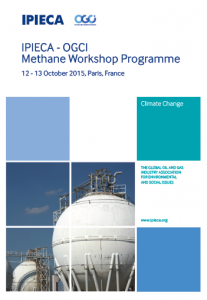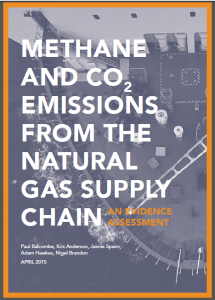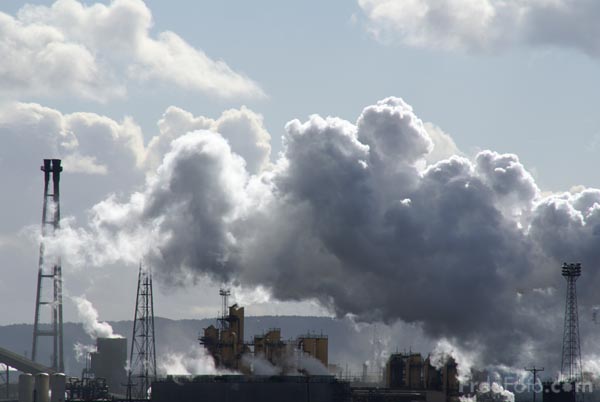A blog by Dr Paul Balcombe from the IPIECA-OGCI Workshop.
On Monday 12th October, I presented at a workshop in Paris which was focussed on understanding methane emissions from the natural gas supply chain. It was a conference organised by IPIECA and OGCI, who are both voluntary initiatives set up by major oil and gas producers to share knowledge on emissions reductions.
was a conference organised by IPIECA and OGCI, who are both voluntary initiatives set up by major oil and gas producers to share knowledge on emissions reductions.
It was great to get a chance to present the work of the Sustainable Gas Institute on methane and carbon dioxide emissions from the supply chain to all these new faces: about 30 new perspectives from industry, as well as some from government, academia and NGOs.
The aim of the conference was really to pool together all of our knowledge on what we currently know about methane emissions from the natural gas industry. The idea is that we can identify the most important gaps in our knowledge that we need to fill and to discuss how we can start to do this.
Key headlines
One of the highlights of the conference was a talk by Prof Myles  Allen from the Environmental Change Institute at the University of Oxford. He delved into detail about the complicated issue of how potent methane is compared to carbon dioxide in terms of climate change. Methane is much more potent in the short term but doesn’t last as long in the atmosphere, so has a much lower lasting effect than CO2. Prof Allen says that, because of this, we need to make sure that we focus on both methane and CO2: if we don’t reduce CO2, we will never stabilise our greenhouse gas emissions; but if we don’t reduce methane, we will have a much larger global temperature when we do reach the peak.
Allen from the Environmental Change Institute at the University of Oxford. He delved into detail about the complicated issue of how potent methane is compared to carbon dioxide in terms of climate change. Methane is much more potent in the short term but doesn’t last as long in the atmosphere, so has a much lower lasting effect than CO2. Prof Allen says that, because of this, we need to make sure that we focus on both methane and CO2: if we don’t reduce CO2, we will never stabilise our greenhouse gas emissions; but if we don’t reduce methane, we will have a much larger global temperature when we do reach the peak.
 Another eye-opener was from a talk by Steve Hamburg, who heads up the work done by the Environmental Defense Fund on direct methane measurement all across the US. It was great to hear him talk so passionately about the massive task of emissions measurement and reduction. One of the take home messages Steve made was that reducing methane emissions is extremely important because this reduces the speed that we are warming the climate (whereas reducing CO2 reduces the overall temperature).
Another eye-opener was from a talk by Steve Hamburg, who heads up the work done by the Environmental Defense Fund on direct methane measurement all across the US. It was great to hear him talk so passionately about the massive task of emissions measurement and reduction. One of the take home messages Steve made was that reducing methane emissions is extremely important because this reduces the speed that we are warming the climate (whereas reducing CO2 reduces the overall temperature).
The key challenges that we summarised from the end of the first day were:
- We need to increase methane emissions data collection. We have seen a big rise in data collection in the US which is great, but we need this to continue to other regions and more downstream emissions measurement.
- It is clear that emissions are highly variable and it is vital that data represents the high distribution of emissions.
- It is also vital that data is validated independently. Much work is going on by the industry to measure and in future publish emissions data, but
 the data must be validated so that transparency is maximised.
the data must be validated so that transparency is maximised. - There is real potential to reduce emissions further and the technology is there. The key is to do this in as low cost as possible and to ensure that appropriate mechanisms are in place to detect super emitters quickly.
If you are interested in finding out more about the subject, read our recent paper (or a short summary) on the challenge of methane and CO2 emissions in the natural gas supply chain.
